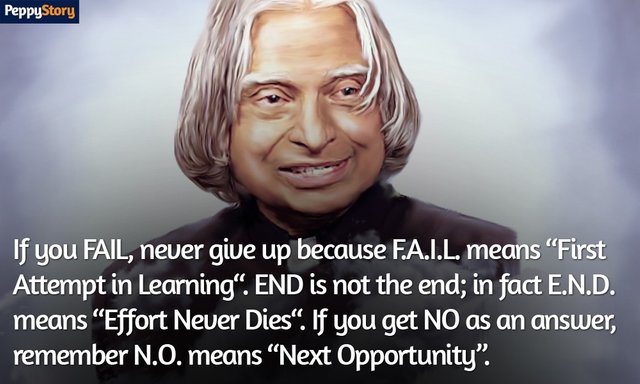Why should we become a three-legged dog?
When we lose something or don't have something that other people have, most of us tend to moan about it for a very long time, sometimes even for the rest of our lives. We wonder why did this happen to us and why the world is such a cruel and unfair place. How does this help us? Sure, short active moaning can help us release the negative feelings, but we are often stuck with the same repeating thoughts for prolonged periods of time, which results in nothing but more negative thoughts, negative feelings, negative thoughts about negative thoughts, negative feelings about negative feelings, etc. For example: "This did/didn't happen to me and now I'm sad because of it. Because I'm sad, I can't do anything else except being sad. Since I can't do anything except being sad, I feel even more desperate, I hate my awful life, I would be better off dead, I might just kill my worthless self!"

What does a dog do when he loses a leg? He gets scared and runs from the danger until he feels safe, he whines about the pain until the pain passes, and then he goes around playing and living like nothing happened! He doesn't think about his lost leg and he doesn't envy four-legged dogs, he simply gets the most out of his life that he can. Be a three-legged dog!

Of course, this is easier said than done. The key to becoming a three-legged dog is choosing to accept yourself unconditionally, whether or not you do well, whether or not you manage to relax about not doing well, whether or not you get approved by others. If you manage to accept yourself as an imperfect individual (which we all are) you will then tend to act in your own interests, go for pleasures, and most importantly of all - feel good!

Please let me know is there something that you are missing so much that you can't stop thinking about it?
If you liked this article then you would probably also like my recent post Can I really be myself? Am I free to do so?.
Have a wonderful day, week, and life!
As a Stoic, I like to add Stoic perspectives to commentary.
One of the foundational teachings of Stoicism, in my opinion, is the Dichotomy of Control. Epictetus describes the Dichotomy of Control, in the Enchiridion as:
As the positive feedback loop of negativity is comprised of our opinions and voluntary thoughts (when we allow a passing thought to metastasize into a constant presence there is a voluntary element to it even if the initial condition is not within our control such as losing a loved one) then it is in our control to either continue or to end.
As Seneca said
Which is essentially the same as the 3 legged dog example but just more explicit.
May Fortune Favor You
Thank you for the thoughtful comment @chris-yoder.
I like your Stoic perspective, it reminds us that we actually can control what's inside us, which we often forget and tend to focus on controlling the uncontrollable outside world.
Indeed, one can make the argument that suffering arises from our attempts to control what is uncontrollable.
I agree with you, it might create an "control attempt - control failure - desperation - stronger need for control - stronger control attempt" infinite loop.
Indeed. Another one of my favorite quotes from Seneca is
Excellent quote. I like how he used the words little and chiefly, some philosophers tend to be too exclusive about their veiw and use words like none and only.
I do like Seneca. He is less pendantic than Epictetus and in some ways more applicable than Aurelius. Of course, the former was a teacher and the latter wrote for himself whereas Seneca wrote letters to others in which he gives advice.
Thanks for the description. I've just bumped into this post about stoicism, I guess that it could interest you. Cheers!
@lifenbeauty payed 5.0 SBD to @minnowbooster to buy a stealth upvote.

transaction-id 24d0881a3074eb1030349f2d477bb008a6bf335b
@stealthgoat
This post has received a 2.09 % upvote from @drotto thanks to: @lifenbeauty.
We should not despair and dissolve in sorrow, begin your new life with positive thinking. Life must be broken with mindset and full of patience @lifenbeauty.
Help upvote my posts yes
Nice thoughts, thanks for sharing. I will check out your posts when I get a chance.
That's a great analogy @lifenbeauty! Dogs truly do just go with the flow and make the best out of anything. I will be more puppy-like in the future ;-)
Thanks for sharing! I'd love to hear your thoughts on my recent post: This Is How My Unsettling New Year's Situation Set Me Free
Thank you. : )
I'll check it out, it seems that we like similar topics.
Cheers!